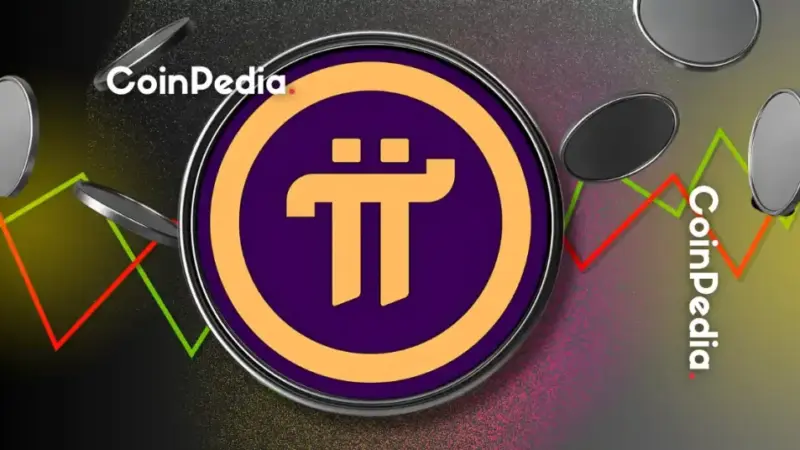Breaking Down the BTC Revolution in 2024: A Q&A with pSTAKE Finance Founder Mikhil Pandey


The post Breaking Down the BTC Revolution in 2024: A Q&A with pSTAKE Finance Founder Mikhil Pandey appeared first on Coinpedia Fintech News
Thanks to upgrades and improvements in 2024, Bitcoin’s emerging DeFi sector, BTCFi, is booming. With new utility for crypto’s most dominant coin, projects are racing to provide new products and services like liquid staking so users can make the most out of their holdings. I sat down with Mikhil Pandey, founder of Binance-backed Bitcoin yield and liquid staking protocol pSTAKE Finance, to learn more.
Q1: What has been the historical role of Wrapped Bitcoin (WBTC) in the DeFi ecosystem, and what challenges has it recently faced?
A1: Wrapped Bitcoin (WBTC) has historically been the preferred collateral asset for Bitcoin holders looking to generate yields on their BTC holdings.
It is well-integrated into leading Ethereum-based DeFi protocols like Aave, MakerDAO, Uniswap, and Compound. Additionally, WBTC has amassed a supply of over $9 billion, representing approximately 0.78% of Bitcoin’s circulating supply, with the majority of its volume, around 64.2%, originating from Ethereum.
However, there has been some concern within the community, especially regarding WBTC being minted without the proper backing. Most recently, BitGo, the company responsible for issuing WBTC, announced that it was transferring custody of its underlying Bitcoin to a new entity, resulting in speculation about the stability of its WBTC.
Q2: Could you please talk about how Coinbase’s upcoming cbBTC token aim to address these gaps?
A2: cbBTC can be viewed as an alternative to WBTC, for which Coinbase plans to leverage its extensive user base and potentially integrate it into its Layer 2 (L2) solution, Base. That said, there are still a lot of ifs and buts involved with the project, with the token’s design still under wraps. However, it could potentially follow in the footsteps of its yield-generating ETH token cbETH’s model.
Q3: How will cbBCTC generate yields despite Bitcoin being a Proof-of-Work chain?
A3: One possibility is that cbBTC could be restaked into protocols like Symbiotic and EigenLayer, leveraging Ethereum’s existing structure to generate yields. Another potential approach could involve building cbBTC as a Liquid Staking Token (LST) on top of a native Bitcoin Staking layer like Babylon. This would allow Bitcoin holders to earn yields without moving their BTC off the Bitcoin network, preserving security while still participating in staking activities.
Another possibility is that Base could implement its own native staking mechanism, borrowing security from Bitcoin and sharing usage yield in ETH with BTC holders.
Q4: Could you please discuss cbBTC’s impact on decentralized Bitcoin staking solutions like Babylon?
A4: cbBTC could attract a broad audience due to its ease of use, extensive distribution network, and integration with existing DeFi protocols on Ethereum, potentially reducing Babylon’s immediate market share.
However, one aspect where Babylon truly differentiates itself from Coinbase is by providing users with novel yield-generation opportunities that are non-custodial trust-minimized in their scope of operation. This is an extremely strong value proposition, targeting a massive audience that the centralized realm simply cannot appeal to.
Lastly, the introduction of Liquid Staking Tokens (LSTs) on Babylon also introduces a custody aspect that may compete with the liquidity and adoption of cbBTC.
Q5: Could you please talk about the concept of restaking being a key differentiator between Bitcoin yield generation solutions like cbBTC and Babylon?
A5: For the uninitiated, the idea of restaking allows Bitcoin holders to leverage their assets to enhance the security of Proof-of-Stake (PoS) chains without moving their BTC off the Bitcoin network. This approach is central to Babylon’s strategy, as it aligns with the principles of trust minimization and non-custodial staking.
In contrast, cbBTC might integrate restaking into protocols like Symbiotic and EigenLayer as part of its strategy, but that still needs to be determined. However, these centralized approaches involve trust assumptions, which might not appeal to many crypto-savvy individuals.
Babylon’s work is cut out in this regard since its non-custodial restaking approach offers comparable or superior yield opportunities while maintaining the security and decentralization intrinsic to the Bitcoin network.
Q6: In what ways could the competition between centralized and decentralized Bitcoin yield solutions shape the broader crypto ecosystem?
A6: The competition could have a profound impact, particularly in how it influences the adoption and development of financial primitives like Restaking and Liquid Staking Tokens (LSTs).
Centralized offerings like cbBTC are likely to drive significant liquidity and user engagement in the short term but decentralized solutions offer a more future-ready framework which can appeal to users wary of increasing centralization within the crypto realm.
As these two approaches vie for dominance, the digital asset ecosystem could see increased innovation in cross-chain interoperability, yield generation, and decentralized finance infrastructure.
Furthermore, the competition could set a precedent for how other blockchain networks approach the integration of Bitcoin into their frameworks. The continued success of projects like Babylon could encourage more projects to prioritize security and decentralization in their designs, leading to a more resilient and trust-minimized crypto ecosystem.


